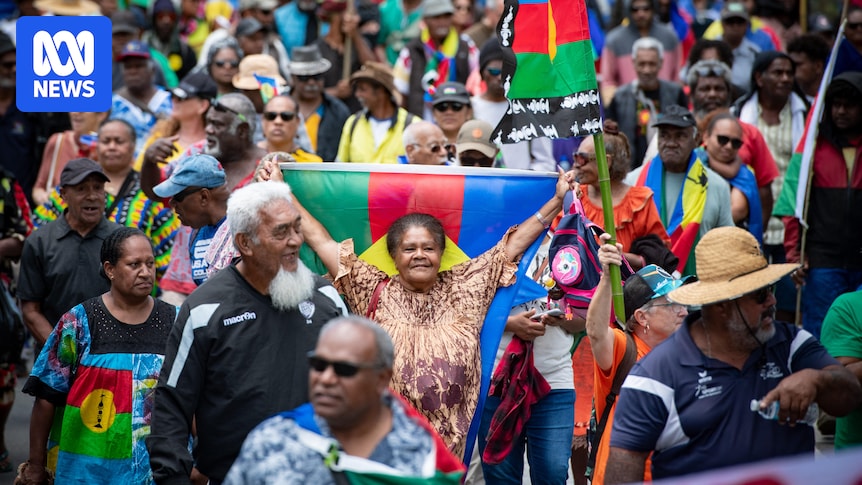
French President Emmanuel Macron has declared a historic “new chapter” for New Caledonia, a Pacific territory that has been embroiled in turmoil over its political status. Following extensive talks near Paris, leaders from New Caledonia have proposed an agreement that aims to resolve the long-standing conflict over independence from France.
The agreement, which emerged from marathon negotiations, proposes the creation of a “state of New Caledonia” within France, introducing a New Caledonian nationality. Macron described the deal as a “bet on trust,” hoping it will pave the way for a peaceful relationship with France. However, the agreement falls short of granting full independence and involves significant compromises from both sides of the debate.
Observers note that despite Macron’s optimism, the deal faces a challenging path before it can be implemented. It will require approval in a February referendum, where New Caledonians will vote on the proposal. The complexity of the agreement, which lacks clear parallels, will need thorough explanation to the public.
Background of the Conflict
The roots of New Caledonia’s political struggle trace back to a series of referendums where a majority rejected independence from France. The last of these votes was particularly contentious, being boycotted by pro-independence groups. This impasse led to violent unrest, prompting renewed negotiations in February, which were seen as a significant step forward.
Despite initial slow progress and efforts by France’s Overseas Minister Manuel Valls, the discussions only gained traction after moving to Bougival, near Paris. A breakthrough came after intense consultations among pro-independence leaders, culminating in a draft agreement announced at the Elysee presidential palace.
Details of the Agreement
The 13-page document outlines the establishment of a “state of Caledonia” within the French Republic, to be recognized in France’s constitution. It introduces a “Caledonian nationality” that residents can hold alongside French nationality. The agreement also proposes an economic recovery pact, focusing on revitalizing the territory’s nickel industry.
While the deal offers New Caledonia some autonomy over international affairs, security, and justice, it stops short of full independence. This arrangement differs from other Pacific nations’ agreements with former colonial powers, such as the Cook Islands’ “free association” with New Zealand. The unique structure of a state within a nation state raises questions about its practical implementation.
“There’s absolutely no precedent in French law — and this whole deal is framed in French law,” said Nic Maclellan, a Pacific journalist.
Reactions and Challenges Ahead
The agreement has been met with mixed reactions. Macron and the involved parties have been keen to promote it as an “intelligent compromise.” Emmanuel Tjibaou, a pro-independence leader, believes it will help end violence in New Caledonia, despite acknowledging the difficult path ahead.
On the other hand, anti-independence voices, like Nicolas Metzdorf, see the Caledonian nationality as a significant concession. The proposal must still pass through France’s National Assembly and win a referendum in New Caledonia, where it faces opposition from some quarters.
“They are the ones who are feeling the most sensitive to it. They’re feeling betrayed, really upset about this situation,” said New Caledonian journalist Brigitte Whaap.
Pro-independence activists have also expressed dissatisfaction, with some leaders feeling excluded from the process. The pro-independence Kanak and Socialist National Liberation Front (FLNKS) acknowledged the agreement’s advances but emphasized the need for collective debate and public information.
Looking Forward
As political leaders return from Paris, they face the challenge of selling the agreement to a skeptical public. The proposal’s success hinges on its acceptance by both pro- and anti-independence groups in New Caledonia. The coming months will be crucial as the territory prepares for the February referendum, which will determine its future relationship with France.
In the meantime, the international community will be watching closely as New Caledonia navigates this complex political landscape, with potential implications for other territories with similar aspirations.






